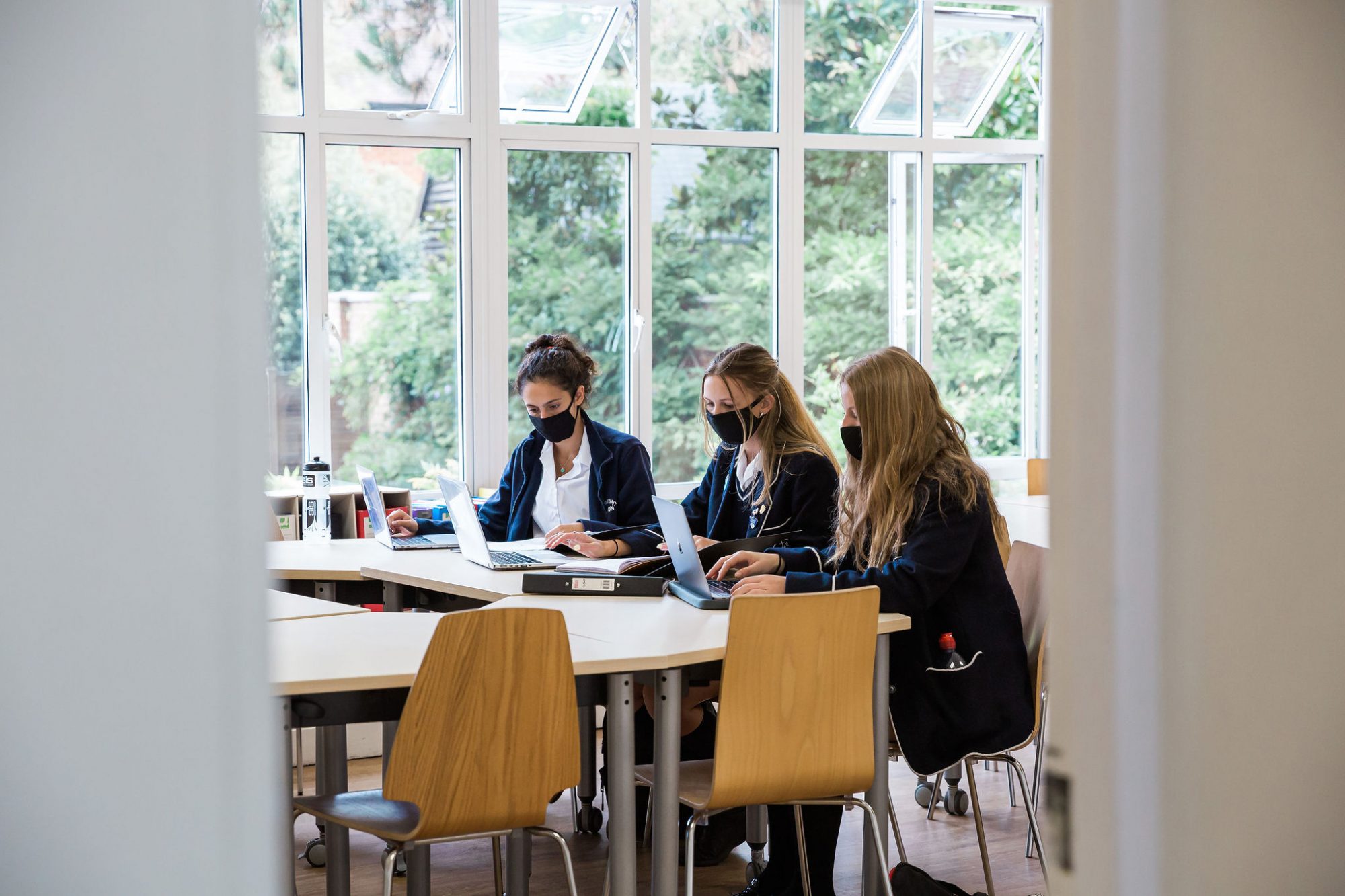Marymount’s Enrichment Programme
The design of Marymount’s Enrichment Programme draws upon Joseph Renzulli’s Enrichment Triad Model (Renzulli, 2012). In this model, Type I enrichment exposes students to “problems, issues, ideas, notions, theories, and skills [which serve] as a catalyst for curiosity and internal motivation” (p. 155). Type II enrichment involves cognitive, metacognitive, methodological and affective skill development, preparing students to produce meaningful products or engaging them in meaningful problem-solving by emphasising skill development and information gathering, thus moving them from ‘inspiration’ to ‘action.’ Type III enrichment involves students in the investigation of real-world problems and the application of discipline-specific knowledge and skills. They approach problems in similar ways to professionals in the field.
At Marymount, our student-centred, inquiry-driven curriculum and pedagogy embodies Type I enrichment by challenging students to research, think, reflect, and communicate in discipline-specific and cross-disciplinary ways, developing conceptual understandings and ways of creatively responding to real-world problems through individual and collaborative inquiry. Reflecting our belief that “a rising tide lifts all ships” (Renzulli, 1998), Type II enrichment is also offered to all students, motivating many to dive deeper into their inquiries. At this level of enrichment, Marymount teachers prepare a range of subject and/or topic-specific enrichment and extension resources and activities that encourage students to begin to think and behave like professionals in a specific field of study with only minimal teacher input. Finally, students who are identified by their teachers as being exceptionally advanced in their subject are offered Type III enrichment. In these cases, Formal Written Plans are created to highlight appropriate differentiated instructional techniques, suggest discipline-specific side projects that students can undertake alongside the curriculum, and include learning targets to limit ‘coasting’ and increase effective, active engagement with, and application of, the ideas and content of specific curricula. These are developed collaboratively by students and their teachers with the mediating support of our Enrichment Programme Coordinator and input from involved students’ parents.
Importantly, in his video ‘On Being Truly Educated,’ Noam Chomsky (2015) argues that “to be truly educated means… to know where to look, how to look, how to question, how to challenge, how to proceed independently, how to deal with the challenges that the world presents to you through inquiry, cooperation and solidarity with others. That’s what an educational system should cultivate from Kindergarten through Graduate school, and in the best cases, sometimes does.” Marymount’s student-centred, process-focused and inquiry-based curriculum reflects Chomsky’s view of what it means to be ‘truly educated’ and is also what research in the field of gifted education suggests that high-achieving students benefit from most.
Marymount’s Support Programme
Although the IB Diploma Programme is one of the most challenging secondary programmes available in the world, it was not designed as a stand-alone programme for highly able students. Motivated, disciplined students of all abilities can succeed in the DP if they know how to learn. With this in mind, the aim of teaching and learning at Marymount is not just to enhance our students’ knowledge, but also to develop them into courageous and principled thinkers, communicators and inquirers who know how to take ownership of their own learning. To achieve this, our curriculum is inquiry-based, student-centred, and process-focused, and ‘Approaches to Learning’ and the IB Learner Profile are at the heart of teaching and learning.
For students who require more support than this, the particular emphasis of the Learning Resources Programme is to encourage them to become highly self-regulated learners. This means we aim to help our students 1) develop a wide repertoire of learning strategies, 2) become more effective and discerning in their strategy use, 3) allocate appropriate levels of effort, 4) monitor their learning and evaluate the effectiveness of their approach, and 5) reflect on the reasons for their successes and failures and understand that there is always something they, themselves, can do to improve. Armed with these attitudes and behaviours, students of all abilities are able to thrive within an increasingly challenging curriculum.
In the case of students with learning difficulties, we do not engage in remedial instruction of Mathematics and English, as many primary schools’ support programmes do, nor do we employ TAs or encourage the use of tutors. Instead, all of the additional support provided is designed to facilitate an effective, autonomous and independent approach. Educational Evaluations are drawn upon to differentiate, scaffold, and modify the curriculum as needed and weekly 1:1 or small group Learning Resource Programme lessons are offered. If specialist dyslexia or dyscalculia tutoring is needed, though, we are happy for parents to arrange this privately and will certainly accommodate this in students’ timetables and liaise with tutors as needed.
Importantly, the entire emphasis of our support programme is on empowering our students to become independent, effective, self-regulated learners, which can sometimes involve unlearning habits and attitudes developed in the younger years. This is hard work! It is therefore vital for our students to embrace their LRC learning targets and for families to work in partnership with us when their daughters need support. With a joined-up approach like this, our students with learning difficulties can, and do, achieve just as highly as their peers. Most importantly, though, these students truly thrive in school when their support is approached holistically with an aim to enhance their ability to regulate and take ownership of their own learning.

